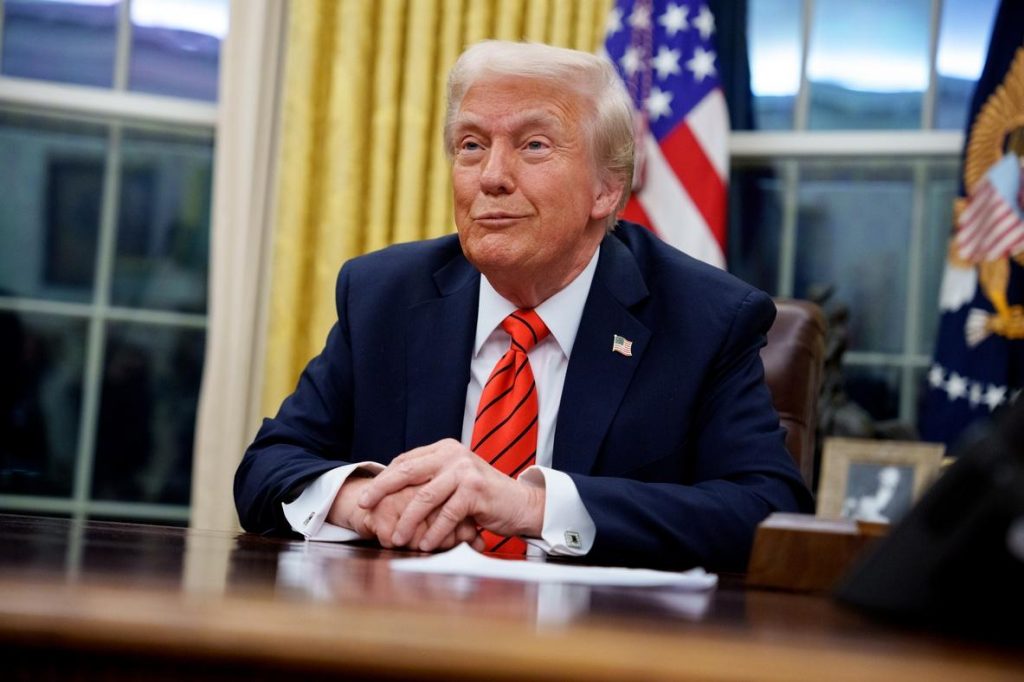President Donald Trump signed his long-awaited executive order paving the way for 401(k) providers to offer access to private equity investments on Thursday, opening the floodgates to what the private equity industry has long salivated over, as a huge untapped reserve of funds.
With $12.2 trillion in defined contribution workplace accounts like 401(k)s and another $16.8 trillion in individual retirement accounts, according to the Investment Company Institute, individuals’ retirement savings could prove spectacularly fruitful for Wall Street if even a small amount of them are allocated to private equity and credit. But these and other alternative assets typically come with higher fees, and plan administrators and sponsors (meaning employers) have been concerned courts could rule that they are breaching their fiduciary obligations under the Employee Retirement Income Security Act of 1974 by offering these products.
“The challenge that has slowed adoption in defined contribution has really been from a litigation standpoint—plan sponsors are reluctant to make available investments that include private markets for fear of being sued,” says Dan Cahill, head of U.S. defined contribution at Swiss-based private equity firm Partners Group. “It will be on the Secretary of Labor to understand how we can stifle that litigation to allow for innovation to occur.”
Thursday’s executive order aims to provide legal cover to sponsors, asking the Secretary of Labor, Lori Chavez-DeRemer, to review and consider rescinding guidance issued by President Joe Biden’s labor department that was read as discouraging the prospect of private assets in 401(k)s. The order also covers other alternative asset classes like real estate and cryptocurrencies. It doesn’t put any policy into effect immediately and simply asks Chavez-DeRemer to clarify this guidance within 180 days, but it didn’t take that long for Chavez DeRemer to hint that her conclusion will be in favor of private equity.
“The federal government should not be making retirement investment decisions for hardworking Americans, including decisions regarding alternative assets,” she said in a statement shortly after the executive order was signed, adding that the order supports efforts to “eliminate unfair one-size-fits-all approaches” to retirement investing.
Private equity firms that have been clamoring for looser regulations ever since Trump reclaimed the presidency are finally getting their wish, following a springtime marked by tariff-fueled uncertainty that slowed dealflow and fundraising efforts. Most of the biggest players in private equity have been laying the groundwork to court more retail investors all year—Blackstone teamed up with Vanguard and Wellington Management in April to develop strategies combining public and private markets, one of several partnerships that have sprouted up among blue-chip firms.
Skeptics fear that high fees and more complex investing strategies will do more harm than good to retirees. Private equity evangelists counter that with fewer companies going public in the last 20 years, diversified access to the entire market needs to include private equity, the same way index funds gave investors access to the whole stock market 50 years ago. Plus, those who have or are still earning traditional pensions have long reaped the rewards of private equity, with public pension funds allocating 23% of their portfolios to alternatives on average, while 401(k) savers haven’t had the same options.
“For decades, public pension funds have invested in private assets because they deliver strong returns over the long term and are a smart, safe way to diversify retirement savings,” said Will Dunham, president and CEO of the American Investment Council, a private equity lobbying organization, in a statement echoing the language of the executive order. “President Trump’s EO is a great step that will help all Americans enjoy the same benefits of stronger returns.”
Partners Group, which launched a private equity fund aimed at the U.S. defined contribution market in 2015, has been at the forefront of lobbying the federal government since then, arguing for more protection against excessive fee lawsuits. Trump’s Labor Department sent a lawyer representing the firm an information letter in 2020 expressing openness to private markets in 401(k) plans, but when Biden took office a year later, that progress was reversed.
Today, Partners Group has a modest sum of about $150 million of the firm’s $174 billion in assets in its U.S. defined contribution products, Cahill says, and will have to accelerate working alongside its private equity peers to develop and market products that will be suitable for retirement accounts. Cahill stresses that the best avenue for private equity in 401(k)s is through professionally-managed target date funds or other diversified managed accounts, instead of as a separate option on a menu that individual workers choose from.
Marc Pinto, global head of private credit at Moody’s, anticipates that the executive order will lead to a proliferation of products like so-called evergreen funds which offer periodic liquidity, but cautions that “if these new investments don’t live up to their promise, asset managers could face lawsuits and regulatory heat.”
Moody’s has also raised concerns about blending illiquid assets with flexible withdrawal features, and it will likely take time before major retirement plan providers like Vanguard and Fidelity develop mainstream products addressing these concerns. The ideal endgame for private equity firms is to be incorporated into target date funds, which have grown to hold about $4 trillion in assets and are now the default investment option in many 401(k) plans. These funds offer daily liquidity, but proponents of private equity argue there will be ways to incorporate small allocations to illiquid alternatives without introducing excessive risk.
“Target date funds will always be daily liquid, but there is a sentiment that everything within the target date fund must also be daily liquid, and I think that will evolve,” says Cahill. “These funds have smart managers who have been managing portfolios for a long time. They’ll know exactly what they can access and what’s best to access at the right times.”
More from Forbes

